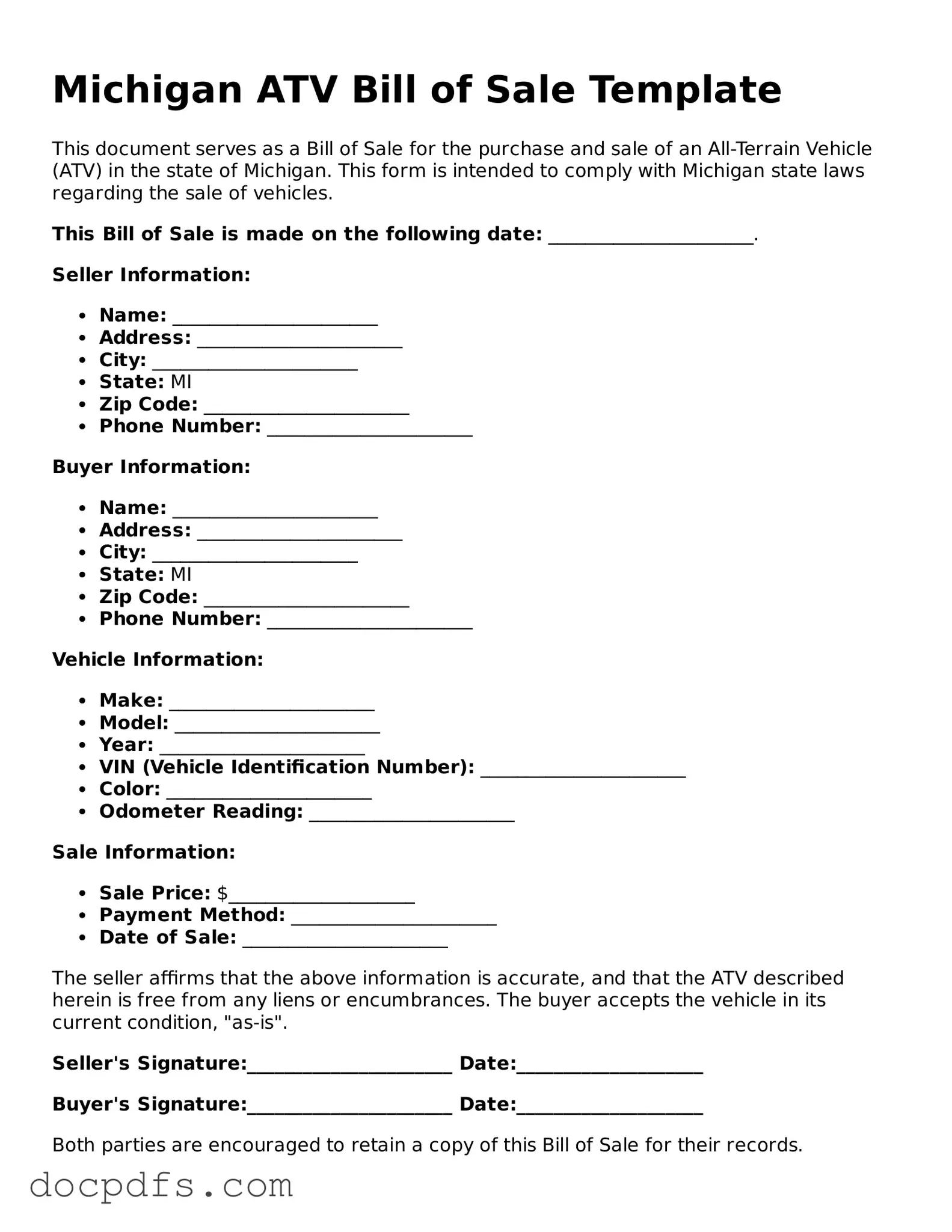Free Michigan ATV Bill of Sale Form
The Michigan ATV Bill of Sale form is a legal document used to record the transfer of ownership of an all-terrain vehicle (ATV) from one party to another. This form serves as proof of the transaction and includes essential details such as the vehicle's description, sale price, and the names of both the buyer and seller. Properly completing this form can help protect both parties and ensure a smooth transfer process.
Open ATV Bill of Sale Editor Now

Free Michigan ATV Bill of Sale Form
Open ATV Bill of Sale Editor Now

Open ATV Bill of Sale Editor Now
or
⇓ ATV Bill of Sale
Finish this form the fast way
Complete ATV Bill of Sale online with a smooth editing experience.